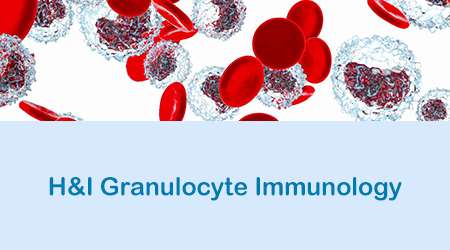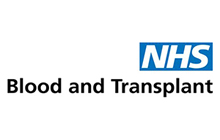Available on the Learning Hub
This programme has moved to the NHS Learning Hub. We recommend you read the information on this webpage to find out more about the programme before you access the learning (https://learninghub.nhs.uk/catalogue/NHSBT-Learning-Zone?nodeId=4655).
More information about the Learning Hub and the migration of elfh programmes can be found here.
About the Histocompatibility and Immunogenetics – Granulocyte Immunology programme
This four-module programme provides insight into current understanding and practice concerning Human Neutrophil Antigens (HNAs). This begins by introducing HNAs in terms of their sites of expression, genetic configurations and occurrences in different populations. Then, clinical contexts of HNAs are discussed (e.g., the impact of HNAs in Neonatal Autoimmune Neutropenia; NAIN), followed by an overview of the tests used to detect and confirm the presence of different HNA specificities (e.g., the Granulocyte Immunofluorescence Test; GIFT). Finally, an assessment based around four case studies is presented as an opportunity to put learning into practice.
More information
Learners must have a basic understanding of immunology – specifically how antigens can induce antibody production – as a knowledge pre-requisite. The four modules must be completed in order and progression can only occur once the learner scores 80% in the assessment (i.e. to access Module 2, learners must score 80% in Module 1, and so on).
Primary and secondary audiences
All staff who work in a Blood Bank, Fetal Medicine Unit, NHS Trust with responsibility for haemostasis, and laboratory-based scientists that perform testing for Human Neutrophil Antigen (HNA) antibodies.
Acknowledgements

Dr Luke A. Rudge
Digital Learning Consultant (NHSBT)
Simon Perkins
Digital Learning Designer and Developer (Freelance)
Members of the H&I team at NHSBT for assistance with end-user testing
Meet the team

Anthony Poles
FRCPath, Consultant Clinical Scientist, Head of Histocompatibility and Immunogenetics (H&I) NHSBT Bristol, NHS Blood and Transplant
Rachel Jackson
Advanced Specialist Biomedical Scientist, Histocompatibility and Immunogenetics (H&I), NHS Blood and Transplant
Rebekka Campbell
Programme Manager - Technology Enhanced Learning, NHS England
Jen Plested
External Project Manager - Technology Enhanced Learning, NHS England
How to access
To access this programme, you will require a Learning Hub account. If you do not have one, then you can register by selecting the Register button below. Note that if you hold a full elfh account, you can sign into the Learning Hub using your existing login credentials.
To view the Histocompatibility and Immunogenetics – Granulocyte Immunology programme, select the View button below. If you already have a Learning Hub account, you will also be able to login and access the resources within the programme .
Not an NHS organisation?
If you are not an NHS health or care organisation and therefore do not qualify for free access to the Learning Hub, you may be able to access the service if you have an existing OpenAthens account. Please go to Learning Hub and sign in with your existing credentials.
If you do not have an existing OpenAthens account, please contact elfh directly to check whether you may be eligible for access.
Registering large numbers of users
If you are a HR, IT or Practice Manager and would like to register and enrol large numbers of staff within your organisation for access onto the Histocompatibility and Immunogenetics – Granulocyte Immunology programme, please contact elfh directly.
Organisations wishing to use their own LMS
For HR departments wanting to know more about gaining access to courses using an existing Learning Management System please contact elfh directly to express interest.
More information
Please select the following link for more information on how to use the Learning Hub




